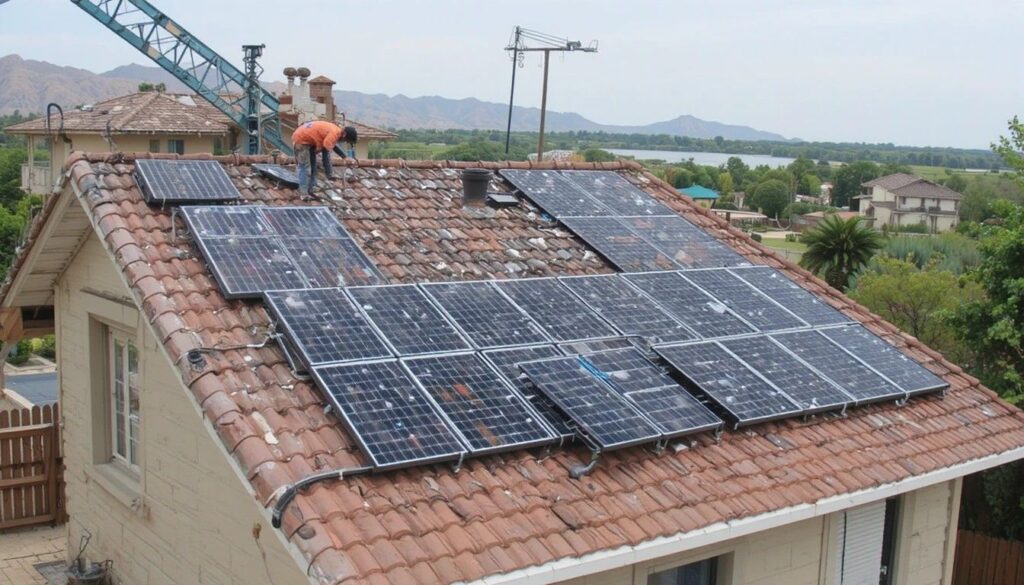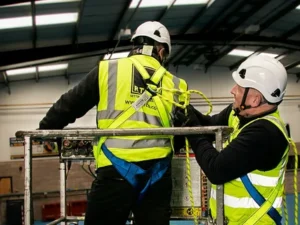
Going solar is one of the smartest investments you can make for your home. You’ll slash your energy bills, increase your property value, and do something positive for the environment. But here’s the thing: picking the wrong installer can turn that dream into a headache. A rushed installation, subpar equipment, or a company that disappears when you need warranty support can cost you thousands.
So how do you find a solar installer you can trust? Let’s break it down.
Start With Their Track Record
Experience matters. A lot. You want a company that’s been around long enough to know what they’re doing and will still be there five or ten years down the road when you need service. Check how long they’ve been in business and ask about their installation numbers. A reputable installer should be able to show you a portfolio of completed projects, preferably in your area.
Local knowledge is crucial too. Every region has different building codes, permitting requirements, and weather considerations. An installer familiar with your city or county will navigate these hurdles smoothly. They’ll also understand which residential solar systems perform best in your climate.
Companies like Right Now Roofing & Solar that handle both roofing and solar bring an extra advantage. Your roof’s condition directly affects solar panel performance and longevity. Having one team assess both means you won’t end up installing expensive panels on a roof that needs replacement in three years.
Certifications and Credentials Matter
Anyone can claim they install solar panels. Not everyone should. Look for North American Board of Certified Energy Practitioners (NABCEP) certification. This is the gold standard in the solar industry. It means the installers have undergone rigorous training and proven their expertise.
Your installer should also be licensed, bonded, and insured. This protects you if something goes wrong during installation. If they offer commercial roofing services alongside residential work, that’s often a good sign they’re established and diversified.
Don’t skip checking their contractor’s license with your state board. A few minutes of research can save you from scammers or fly-by-night operations.
Read Reviews and Ask for References
Online reviews give you unfiltered insights into customer experiences. Check Google, Yelp, and the Better Business Bureau. Look for patterns. One bad review might be a fluke, but multiple complaints about the same issue? That’s a red flag.
Pay attention to how companies respond to negative feedback. A professional response shows they care about customer satisfaction. Radio silence or defensive replies? Not a good look.
Ask the installer for references from recent customers. Call them. Ask about the installation process, whether the project finished on time, and if the system performs as promised. Were there any surprise costs? How was the communication? Real customers will tell you things a sales pitch won’t.
Get Multiple Quotes and Compare Carefully
Never settle for the first quote. Get at least three estimates from different installers. This gives you a realistic sense of pricing and helps you spot anyone trying to overcharge or undercut with cheap equipment.
But here’s the key: don’t just compare the bottom line. Look at the equipment specifications. What brand of panels are they proposing? What’s the warranty? How efficient are the inverters? Some companies win bids by offering lower-quality components that save you money upfront but cost more in the long run through reduced efficiency and shorter lifespans.
Ask about the installation timeline too. How long from contract signing to system activation? A company that can’t give you a clear timeline might be overbooked or disorganized.
Understand the Warranty and Service Agreement
Your solar system should come with multiple warranties: one for the panels (usually 25 years), one for the inverter (typically 10-15 years), and one for the installation workmanship (at least 5-10 years). Read these carefully.
What happens if something breaks? Who handles repairs? If the company goes out of business, are the manufacturer warranties still valid? These aren’t fun questions, but they’re important.
Some installers offer monitoring services that track your system’s performance and alert you to issues. This can catch problems early before they cost you serious money in lost production.
Consider Their Roofing Expertise
This is often overlooked. Solar panels live on your roof for decades. If your roof is older or has existing damage, you need an installer who can properly assess it. Some solar companies will install on any roof just to make the sale, leaving you with leaks or structural issues down the road.
A roofing insurance specialist can evaluate whether your roof needs work before panels go up. Right Now Roofing & Solar and similar companies that integrate both services can coordinate any necessary repairs with the solar installation, saving you time and preventing future problems.
Trust Your Gut
After all the research, checking credentials, and comparing quotes, listen to your instincts. Did the sales rep pressure you? Did they take time to answer your questions? Were they transparent about costs and potential challenges?
The right installer will educate you, not just sell you. They’ll assess your energy needs honestly and might even tell you if solar doesn’t make sense for your situation yet. That kind of integrity is rare and valuable.
Going solar is a big decision, but choosing the right installer doesn’t have to be stressful. Take your time, do your homework, and you’ll find a partner who delivers clean energy and peace of mind.
5 FAQs for “Choosing a Solar Installer”
- How much does it cost to install residential solar systems? Most homeowners pay between $15,000 and $30,000 before incentives, depending on system size and location. Federal tax credits can reduce this by 30%.
- What certifications should my solar installer have? Look for NABCEP certification, proper state licensing, insurance, and bonding. These ensure they meet industry standards and protect you during installation.
- How long does solar panel installation take? After permits are approved, physical installation typically takes 1-3 days. The entire process from contract to activation usually takes 2-4 months.
- Should I repair my roof before installing solar panels? Yes, if your roof is over 15 years old or has damage. Removing and reinstalling panels to fix roofing issues later costs significantly more.
- What’s the difference between solar leases and purchasing? Purchasing means you own the system and get all tax benefits and long-term savings. Leasing requires no upfront cost but offers smaller savings and no tax credits.

